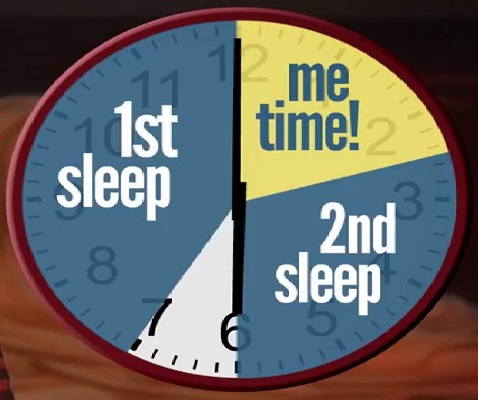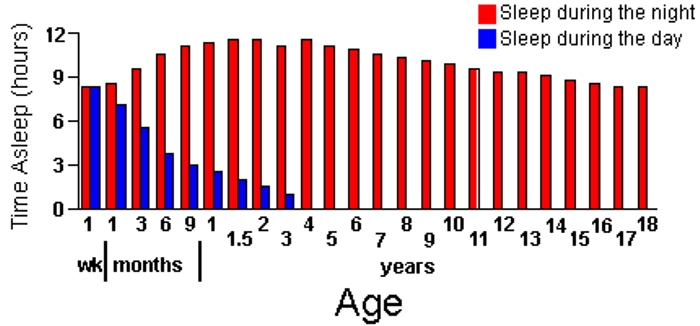For many of us the worst moment of every day is an alarming clock. That noise makes our daily return from the mysterious world called the sleep. We spend about one third of our lives while sleeping. Most of us have no idea what happen when we close our eyes for a sleep. Even scientists do not have a clear idea about the sleep. In a past few decades it’s become clear that sleep might be the single most important behavior that humans and other animals experience. Team at scienceve decided to bring some interesting stuff for, why do we sleep.
Science of Human Sleep
Neuroscience explains us that human sleep is controlled by two different networks of chemical and electrical signals in the brain. During our awaking hours neuro transmitters release deep breath in our brain and keep our cerebral context alert and prime for consciousness. But rest of the day, neurons breakdown energy for ATP. The byproduct adenosine builds up and activates the sleep control neurons. A special region in the center of the brain axis is a biological clock. Light sensitive cells in our eyes feed signals deep into that brain region training neurons to synch up with earth’s 24 hours cycle of day and night. These circadian rhythms tell us when to feel sleepy or awake. It is also important, how much should we sleep daily.

A very common question mostly arise in minds that why do we sleep at night? As world goes dark this master switch tells our pineal gland to increase the level of Harmons in the blood stream. That results in feeling a fatigue setting and body temperature lowers slightly. And that is the reason for many of us like to fell a sleep with their feet taking out of the covers. All of this neuro-chemistry sends one clear message to our body “when it’s dark, it’s time to go to bed”.
Health Hazards of not sleeping
Unfortunately darkness in modern time is increasingly rare. In United States 99% of the people live in areas that meet standards for light pollution. Edison thought that sleep is lazy, unhealthy and inefficient; even it took several hours of the day. But despite of democracy, his work more sleepless view changed our world forever. Illuminating the night became a science of economic progress. Human time is no longer on the mercy of nature’s clock. Artificial light has serious effects on our sleep cycle. When we are exposed to the bright light at night, our brain does not know better than this that sun is shining. This could be very confusing. Depression, heart disease, cancer and diabetes have all been linked to the over exposure of the artificial light. Until just a couple hundred years ago it was common for people to fell asleep right after the sun went down. Then snooze for a while, wake up round mid night. They can read, study and do other stuff. And then go back to sleep until morning.

Modern experiments have suggested that if people are kept away from artificial lights, their bodies will return to this pattern of first and second sleep. Yet most of us insist on sleeping the whole night through. What worse? Our circadian rhythms are so tuned to day and night that if we stay a passed a usual bed time, we do not wake up later. We just tend to sleep less. As a result we are massively sleep deprived.

Most adult’s average at 6.5 hours a night and teen agers just 5 hours on the school nights which is half of what they need. To fight this chronic exertion we try to stimulate like caffeine to help our brain to ignore the buildup of adenosine and then to fight the stimulance many people rely on alcohol. Which does not really help us with restful sleep. This special cycle worth billions of dollar in a year.
Why do we need sleep?
In short we are not really sure but we know it’s the center to life. Animals deprived of sleep for a long enough time and can literally die from exertion. For us about 15% of the genes are linked to circadian rhythms. Still there is no consensus on exactly why our bodies need sleep. We are definitely not active at night but consider we only burn 100 fewer calories while sleeping. It’s not a very good energy saving strategy overall. We definitely do a lot cellular repair, protein synthesis and general biological up keep while we are in dream land but it’s not work that stuff if we are awake too.
Another theory says that our body use a time of sleep to flush out all the neuro garbage. It considers removing the waste products that build up in our neurons and brain cells. Decision making regions of the brain like the prefrontal cortex, when they do not get any down time before awake might not go to work smartly. If you are totally relaxed and you think your mind is clear, your prefrontal cortex is still pre frontal cortexing. I mean it’s just trying and thinking about nothing. Sleep seems to be the only time for this region to power down and get a break. The greatest benefit of sleep may lie in processing information and consolidating memories from throughout the day. Letting the brain do all re-wiring, it is necessary for thinking better.

Sleep deprived people do worse when learning to new tasks and they are less able to process new information. Whereas a good night slept appear to more creative and come up with solution of the new problems they have not seen before. Perhaps the biggest mystery is how snoozing evolved in the first place. Snoozing animals were always remaining the easy targets for predators. So evolution would have come up with something better. But it has not. There is no way to get around the need for sleep. Some animals have come up with interesting ways of sleeping. Dolphins obviously cannot off without drowning. So they only sleep with one and half of their brain at a time and swimming around with rest of the half of the brain.
Sleep or similar patterns of rest are seen so universally throughout the animal kingdom that they must have an ancient origin. One clue came from a tiny ocean drowning worm “Platynereis dumerilii”. Every night these worms swum near the surface of the ocean to feed and every night they sink down deep to avoid light and the predators. The worms have special daylight sensing cells on their back just like the ones in our eyes. When it’s dark, those cells trigger the production of melatonin just like in our brains. As the melatonin builds up, these worms begin to sink. Just in the time the Sun day come up. As the melatonin disappeared throughout the day, the hairs begin beading again they swum again back to the surface. And finally we can predict sleep might have evolved seven hundred million years ago.


